-
Inicio
Del 29/10 al 31/10 -
Ubicación
Vía zoom
Presentation
Ever since the beginning of 2020, humanity slowly began to sense that an unprecedented ecological scourge (of untold scientific-medical, psychological, social, economic, and political consequences) has struck our world. It also raised an essentially ethical question: whether the Earth’s devastation gradually brought about since Modernity by the hybris of our technical-industrial civilization is not due to its own responsibility.
Human beings, as a part of nature but endowed with the singularity of their reflexive capacity (self-awareness), face their own finitude: the limits of their cognitive capacities, their possibilities to act and solve, and their capacities to anticipate what will come to pass. They ask who and what they are. Problems acknowledged since Modernity as those of “subjectivity” emerge under a new light.
Since Modernity, humans—masters over nature—interact with the latter by dominating it (scientia propter potentiam), rather than by their responsibility towards it. Additionally, from Descartes to 19th century positivism, subjectivity is understood ambiguously and dualistically, prioritizing the “objective” criterium. During the 20th century, the notion of “subjectivity” not only delimits the increasing rift between the analytic and continental traditions but also, ever since Husserl’s phenomenology, it affects the development of the latter in different directions.
As of late, both traditions have begun to reconsider the “enigma of subjectivity” beyond their “cultural divide.” Currently, there are debates concerning, on the one side, the dual approach to the subject both from the singular and plural “first” and “third person” perspectives; and, on the other side, the growing recognition of the originary, founding, and pervasive character of the emotional dimension at the basis of its valuing, cognitive and responsible activities. Both topics are enframed within the mind-body relation.
Facing the 2020 crisis, and called upon to assume its responsibility, the Peruvian Circle of Phenomenology and Hermeneutics summons members from different philosophical traditions to discuss these topics. This year’s keynote speakers are professors Agustín Serrano de Haro (Spain) and Dan Zahavi (Denmark).
Program
THURSDAY 29TH
WELCOMING WORDS
Fenomenología del vértigo y el mareo
Joan González Guardiola
El arco intencional reconsiderado
Ariela Battán
Discusión
Pausa
Carne y narración, dos dimensiones de la subjetividad interpersonal y de la persona humana
Martín Mercado
Dos interpretaciones latinoamericanas pragmatistas-fenomenológicas de la subjetividad e intersubjetividad
Alejandro Arango
Discussion
Break
Empatía, alteridad, moralidad
Dan Zahavi
Discussion
Break
Las paradojas de la subjetividad en la autoconstitución responsable de la identidad personal
Rosemary RP. Lerner
Subjetividad transcendental y alteridad en Martin Heidegger
Gustavo Cataldo
Discussion
Break
Fenomenología de la vida afectiva
Celia Cabrera & Micaela Szeftel (Editors)
FRIDAY 30TH
Sobre las fundamentos sensibles y transpasibles de la responsabilidad. Un análisis de la teoría fenomenológica de Henri Maldiney
Bryan Francisco Zúñiga
An Analysis on Hendri Maldiney ́s Phenomenology of Receptiveness
La fenomenología de lo cotidiano de Bruce Bégout
Manfredi Moreno
Hacia una responsabilidad por el mundo como estructura originaria de la subjetividad: de Jonas a Levinas
Charles-André Mangeney
Discussion
Break
E. Husserl, Introducción a la Ética. Lecciones de los semestres de verano de 1920 y 1924
Mariana Chu, Mariano Crespo & Luis Rabanaque (Translators)
Break
El fragmento 3 del poema de Parménides y la ontología fenomenológica
Luz Ascárate
Sobre crisis y finales: finitud del fin o del fin de la finalidad
Ricardo Mendoza-Canales
Leituras ricoeurianas sobre a sabedoeria pratica
Manoel Coracy
Discussion
Break
La responsabilidad y la tarea del filósofo según Husserl
Vania Alarcón
Una aproximación fenomenológica a la experiencia de la vejez
Juan Pablo Cotrina
Budismo y fenomenología: conciencia, meditación y corporalidad
Martín Rosado
Discussion
SATURDAY 31TH
La autosuficiencia de la razón en el Discurso del método de Descartes
Víctor H. Palacios
El problema del autoconocimiento según Berkeley
Álvaro Prado
Discussion
Break
Presentación de libro. La racionalidad ampliada. Nuevos horizontes de la fenomenología y la hermenéutica
Mariana Chu & Rosemary RP. Lerner (editoras)
Break
Husserl, Benjamin y la crisis de la modernidad
Ricardo Rojas
Teleología en la constitución del otro
Bruna Uceda
Discussion
Break
Los dos nacimientos de la fenomenología
Agustín Serrano de Haro
Discussion
Break
Percepción, mundo y cultura en la fenomenología de Husserl
Jaime J. Villanueva
Horror y aburrimiento: los síntomas de la barbarie según Michel Henry
Micaela Szeftel
Discussion
Break
“Heme aquí”: Argumentario para una crítica de la subjetividad levinasiana en Otro modo que ser
Cristóbal Balbontín
Responsabilidad, simpatía y libertad: la fundamentación scheleriana del principio de solidaridad
Mariana Chu
Discussion
CLOSING WORDS
Invitados internacionales
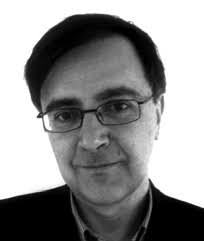
Agustín Serrano de Haro
Research fellow at the Centre of Human and Social Sciences of Madrid and of Spain’s High Council of Scientific Research. Ex-president of the Spanish Society of Phenomenology, his main published works are Cuerpo vivido (Ediciones Encuentro 2010), Paseo filosófico en Madrid. Introducción a Husserl (Trotta 2016), Hannah Arendt (RBA 2016), “En los límites de la fenomenología: el análisis del dolor físico” (Biblos 2010), “Is Pain an Intentional Experience?” (Phenomenology 2010), “Apariciones y eclipses del cuerpo propio” (Comares 2013), among others. He is one of the main Spanish translators of Husserl’s work into Spanish.
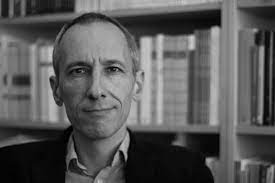
Dan Zahavi
Professor at the University of Copenhagen (Center for Subjectivity Research) and of the University of Oxford. He is currently conducting the project “Who are we? Self-Identity, Social Cognition, and Collective Intentionality” funded by the European Research Council and the Carlsberg Foundation. He is co-editor of the Journal Phenomenology and the Cognitive Sciences, alongside S. Gallagher. His long list of published works –translated into several languages– include Husserl’s Phenomenology (Stanford 2003), Subjectivity and Selfhood (MIT Press 2005), The Phenomenological Mind (coauthored with S. Gallagher) (Routledge 2008/2012), Self and Other (OUP 2014), Husserl’s Legacy (OUP 2017), and Phenomenology: The Basics (Routledge 2019).
Ponentes
Vania Alarcón
Bachiller en Filosofía de la Pontificia Universidad Católica del Perú (PUCP). Sus principales temas de investigación son la fenomenología, ética y filosofía social. Actualmente se en- cuentra en el proceso de sustentar una tesis titulada “Husserl. Prolegómenos para una nor- matividad ética”. Miembro del Círculo Peruano de Fenomenología y Hermenéutica (CiphER). Asimismo, se desempeña como asistente de docencia en la PUCP y profesora de filosofía a nivel escolar.
Alejandro Arango
Doctor y magíster en filosofía de la Universidad de Vanderbilt (Nashville, EE.UU.) y magíster en filosofía de la Universidad de Binghamton (Binghamton, EE.UU.). Hizo una estancia post- doctoral en Tennessee State University y actualmente es catedrático de la Universidad de Gonzaga (Spokane, EE.UU.). Su trabajo filosófico se centra en la percepción sensorial con énfasis en su aspecto social y su dimensión epistemológica, epistemología social, cognición social y ética. Entre sus más recientes publicaciones se exploran una teoría social de la per- cepción (Adaptive Behavior, 2019), intersubjetividad y mundo perceptual (Acta Fenomeno- lógica VI, 2019) y ontología social (Phenomenology and the Cognitive Sciences, 2016).

Luz Ascárate
Luz ASCARATE is a non-tenured professor and researcher (ATER) at the University Paul Valéry Montpellier 3 and a PhD in philosophy from PUCP and EHESS. She is currently pursuing a second doctoral thesis, in metaphysics, under the supervision of Renaud Barbaras, at the University Paris 1 Pantheon-Sorbonne. Agrégée in philosophy, she is the author of the book Imaginer selon Paul Ricoeur. La phénoménologie à la rencontre de l’ontologie sociale (Paris, Hermann, 2022) and editorial secretary of Klēsis. Revue philosophique. She recently received the young researcher award from the Foundation de Treilles 2024 (France).
Cristobal Balbontin
Ph.D. in Philosophy by the Universität J.W. Goethe and the Université Paris-Nanterre, under the supervision of Axel Honneth and Catherine Chalier, with a thesis titled “Levinas/Hegel and the Problem of Recognition”. He currently works as an auxiliary professor at the Universidad Austral de Chile and as a Fellow Researcher at the Institut des Recherches Philosophiques (IRePh), Université Paris-Nanterre. Some of his publications on phenomenology are: “Levinas penseur libertaire”, (Revue de philosophie de France et l’étranger); “Levinas et la question du politique. De quel État s’agit-il?” (Revue philosophique de Louvain); “Husserl y el problema de la intersubjetividad” (Revista Alpha), among other texts.
Gadamer/Wittgenstein: Agreements and Disagreements between Hermeneutics and Ordinary Language Philosophy
In philosophy, a certain conventional status questionis projects an image of analytic philosophy and hermeneutical phenomenology as antagonist. However, a few decades ago, neo-pragmatist interpretations of Wittgenstein began opening up the possibility of a dialogue with Gadamer’s hermeneutics. As it is well-known, Gadamer read Wittgenstein after the publishing of Truth and Method in 1960, and found his ideas relatable. We can see this coincidences, for example, when Gadamer addresses what is properly hermeneutical: to practice a critique of language to reconduct metaphysical matters “to the linguistic constitution of our being in the world”. Or when Gadamer understands hermeneutics as “interpretation,” referring to the practical behaviour of men in the world, sharing with Wittgenstein the idea that the meaning of language is shaped by social uses. Thus, our goal is to reflect on the coincidences and distances between both thinkers.
Ariela Battán
Doctora en Filosofía (Universidad Nacional de Córdoba), Investigadora Independiente del Consejo Nacional de Investigaciones Científicas y Tecnológicas (CONICET) y Profesora Asis- tente en la Facultad de Filosofía y Humanidades (UNC). Sus líneas principales de investi- gación son Fenomenología de Merleau-Ponty, el “giro corporal” en la comprensión de la cognición, epistemología cartesiana y el diálogo Fenomenología y Ciencias Cognitivas.
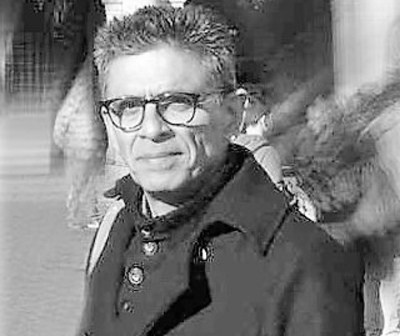
Gustavo Cataldo
Profesor del Departamento de Humanidades de la Universidad Andrés Bello, Chile. Se ha desempeñado en distintos cargos de dirección universitaria y diversos proyectos de investi- gación FONDECYT (Fondo Nacional de Desarrollo Científico y Tecnológico). Ha sido miem- bro y director del Grupo de Estudios de Filosofía de esa misma institución. Ha cumplido labores de evaluación en instituciones de acreditación privadas y públicas. Tiene diiversas publicaciones en revistas nacionales y extranjeras. Sus áreas de especialización son la fi- losofía antigua (Aristóteles), estética (idealismo alemán) y fenomenología y hermenéutica (Martin Heidegger).

Mariana Chu García
Ph. D. in Philosophy from the Catholic University of Louvain, Belgium, she is Professor and Coordinator of the Philosophy Section of the Department of Humanities of the Pontificia Universidad Católica del Perú and Director of its Center for Philosophical Studies. Ordinary member of the Latin American Circle of Phenomenology and the Peruvian Circle of Phenomenology and Hermeneutics, her areas of study are ethics and intersubjectivity, particularly from the phenomenology of Husserl and Scheler, topics on which she has published several articles in academic journals, including “Max Scheler et la phénoménologie des illusions morales” (Alter, 2023). She is editor, together with Rosemary Rizo-Patrón and Vania Alarcón of the book Métodos y Problemas. Perspectivas e investigaciones fenomenológicas actuales (Teseo, 2024). She is also translator, together with Mariano Crespo and Luis R. Rabanaque, of the book Introducción a la ética. Lessons from the summer semesters of 1920 and 1924 (Husserliana XXXVII) (Trotta, 2020).
Manoel Coracy
Profesor de la Universidad Federal de Acre (UFAC), Miembro de la Asociación Iberoamericana de Estudios Ricœurianos (ASIER), Miembro Colaborador del Círculo Peruano de Fenomenología y Hermenéutica (CIphER) y Líder del Grupo de Investigación en Estudios Estratégicos y Relaciones Internacionales de la Universidad Federal de Acre (UFAC).
Juan Pablo Cotrina
He holds a Bachelor and Master in Philosophy from the Universidad Nacional Mayor de San Marcos (UNMSM) and is a Doctoral candidate at the Pontificia Universidad Católica del Perú (PUCP). Member of the Latin American Circle of Phenomenology (CLAFEN). Member of the Peruvian Circle of Phenomenology and Hermeneutics (CIphER) and CIphER’s research group.. Professor at the Universidad Peruana Cayetano Heredia (UPCH). His lines of research include husserlian phenomenology, Heidegger and Sartre. He is currently preparing a thesis on the relationship between the theories of time and morality in Sartre’s phenomenology.
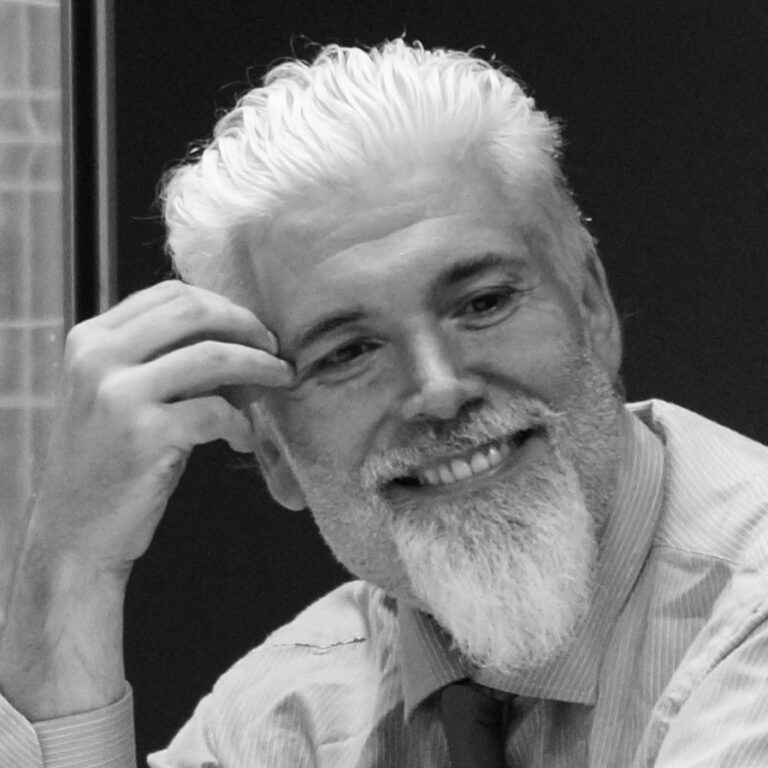
Joan González Guardiola
Extraordinary PhD. Award from the University of Barcelona with the thesis “Time and Measure. Phenomenological Investigations on Temporality and Chronometry.” He has been professor of Theory of Knowledge at the University of Barcelona, and is currently professor of Metaphysics at the University of the Balearic Islands. He has published Heidegger and Watches (ed. Encuentro, 2008) and Merchandise and Debt. Contributions of a Phenomenology of Money to the Foundation of the Monetary Theory (ed. Jitanjáfora, 2017). Secretary of the Spanish Society of Phenomenology, since 2012. Editor and translator, with Francesc Perenya Blasi, of the Catalan version of Edmund Husserl’s classic Cartesian Meditations.
Towards a Hermeneutical Grounding of the Laws of the Temporality of Waiting and Expectation
The goal of the present work consists in verifying, based on several fundamental texts of diverse religious and literary traditions, the legitimacy of establishing a law of time anticipation. The law reads as follows: “The determination of the content of an eschatological event is inversely proportional to the level of world-constitution whereby the waiting occurs.” In this research we will show how this law is fulfilled in several different descriptions of the waiting and expectation temporality, even in descriptions of wholly different cultural contexts and frameworks. This law may be hermeneutically obtained (a path that we will follow here), through the adequate interpretation of texts from very diverse traditions, as well as phenomenologically (through the adequate description of the phenomenology of waiting). We will show the double way to obtain this law proper to the anticipating experience.
Charles-André Mangeney
Ex-alumno de la École Normal Superior de Lyon, agregado de filosofía, cursa actualmente un doctorado en filosofía bajo la dirección de Renaud Barbaras en la Universidad París I Pan- théon-Sorbonne sobre la cuestión de la posibilidad de una “fenomenología de la práctica“ a partir de Jan Patočka, Jean-Paul Sartre y Michel Henry. Además, realiza cursos de filosofía en la Sorbona así como forma parte del comité de dirección de dos seminarios universitarios dedicados a la fenomenología (Seminario Patočka y Rencontres phénoménologiques) y de una revista de filosofía general (“Le Philosophoire“), teniendo finalmente a su haber diversas publicaciones científicas (Alter, Cahiers philosophiques, etc.).
Ricardo Mendoza-Canales
Ricardo Mendoza-Canales obtained his PhD in Philosophy from the Autonomous University of Barcelona (UAB). His area of specialization is contemporary continental philosophy and his research interest focuses on the study of imagination and the imaginary, particularly at their intersections with phenomenology, epistemology, cultural studies, social ontology, politics, and aesthetics. Currently, he is FCT Junior Researcher at the School of Arts and Humanities of the University of Lisbon and coordinator of the Practical Philosophy Research Group (Praxis) at the Centre of Philosophy of the University of Lisbon (CFUL).
Martín Mercado
Estudió filosofía y literatura en la Universidad Mayor de San Andrés, donde actualmente trabaja como docente (Carrera de Literatura). Ganó el premio nacional de investigación de tesis de maestría CIS:16 con una investigación sobre la libertad en la novela Juan De la Rosa (1885) de Nataniel Aguirre. Fue becario de investigación (DAAD) sobre fenomenología del cuerpo y la persona en la universidad de Rostock, Alemania. Dirige el grupo Fenomenología en Bolivia, es miembro colaborador del Círculo Latinoamericano de Fenomenología (CLA- FEN) y de la Gesellschaft für Neue Phänomenologie (GNP).
Manfredi Moreno
Actualmente realiza su tesis de doctorado, “Cosmología de lo visible: la filosofía de Mer- leau-Ponty”, en la Universidad París I Panthéon-Sorbonne. bajo la dirección de Renaud Bar- baras. Laureado por las Becas Chile y DAAD, forma parte de la Asociación Internacional por la fenomenología (A.I.P.), así como ha publicado diversos artículos en revistas como Anales de fenomenología y diversas traducciones de fenomenólogos franceses. Miembro del Cír- culo Latinoamericano de Fenomenología y Hermenéutica (CLAFEN). Es organizador funda- dor del seminario “Rencontres phénoménologiques” realizado en Paris.
Víctor H. Palacios
Escritor y profesor de la Universidad Católica Santo Toribio de Mogrovejo, de Chiclayo (Perú). Tiene un diplomado, una maestría y estudios de doctorado en Filosofía por la Universidad de Navarra (España). Es miembro colaborador del Círculo Peruano de Fenomenología y Her- menéutica (CIphER) y del Círculo Latinoamericano de Fenomenología (CLAFEN). Algunas de sus líneas de investigación son el cuerpo y lo social en la condición humana, Michel de Montaigne y la filosofía de Descartes. Es coautor de libros y autor de artículos publicados en España, México, Colombia y Uruguay. Recientemente ha publicado el libro Desde la venta- na, memorias de una cuarentena (2020).
Álvaro Prado
Estudiante de último ciclo de Filosofía de la Pontificia Universidad Católica del Perú (PUCP), con estudios de intercambio en la Univerzita Hradec Králové (República Checa) y en la Hum- boldt-Universität zu Berlin (Alemania). Sus temas de interés son la gnoseología, la metafísica y la ética, principalmente en la filosofía moderna.
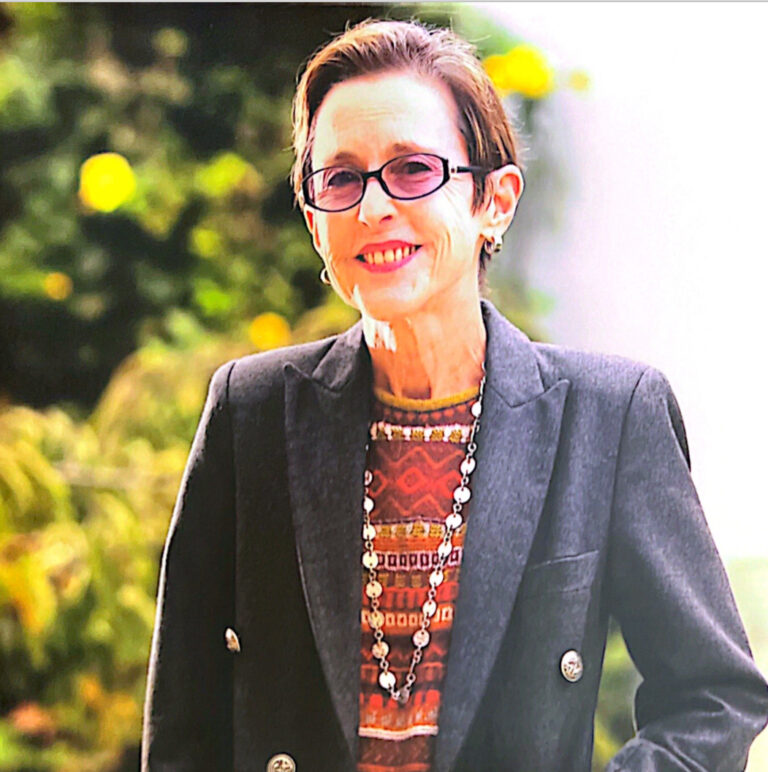
Rosemary Rizo-Patrón de Lerner
Doctora en Filosofía por la Universidad Católica de Lovaina (Bélgica), es profesora principal de la Pontificia Universidad Católica del Perú; Secretaria del Círculo Latinoamericano de Fenomenología (CLAFEN) y del Círculo Peruano de Fenomenología y Hermenéutica (CiphER); y miembro de varias sociedades y comités de revistas filosóficas internacionales y series de libros. Su investigación gira en torno a las filosofías trascendentales de Kant y Husserl, teoría del conocimiento y filosofía fenomenológica contemporánea. Es autora y editora de múltiples artículos y trabajos colectivos sobre estos temas. Autora de Husserl en diálogo, lecturas y debates (Bogotá/Lima: 2012), El exilio del sujeto, mitos modernos y posmodernos (Bogotá/Lima: 2014/2015), La agonía de la razón, reflexiones desde la filosofía práctica (Madrid/Lima: 2015); editora de El pensamiento de Husserl en la reflexión filosófica contemporánea (Lima: 1993), Interpretando la experiencia de la tolerancia (Lima: 2006); y co-editora de La razón y sus fines. Elementos para una antropología filosófica en Kant y Husserl (Hildesheim: 2013), y de La racionalidad ampliada, nuevos horizontes de la fenomenología y la hermenéutica (Bogotá/Lima: 2020).
Ricardo Rojas
Bachiller en Filosofía por la Pontificia Universidad Católica del Perú (PUCP). Además, se des- empeña como pre-docente en la misma casa de estudios. Es miembro del Grupo de Inves- tigación en Arte y Estética de la PUCP. En el 2017, Recibió una beca del programa Eramus+ para un semestre de estudios en la Univerzita Hradec Králové (UHK) de República Checa. Actualmente se encuentra trabajando en una tesis sobre la filosofía de Walter Benjamin, titulada “Arte e historia en la obra de Walter Benjamin: La politización del arte a la luz de las tesis sobre la historia”.
Micaela Szeftel
PhD in Philosophy by the University of Buenos Aires and postdoctoral fellow of the National Council of Scientific and Technical Research (CONICET, Argentina). Her current research is focused in the area of the phenomenology of affectivity, with special emphasis on the intersubjective dimension of emotions in the philosophy of Michel Henry and Edmund Husserl. Her publications include the book Subjetividad y autoafección: la problemática de la temporalidad en la fenomenología de Michel Henry (Teseo, 2016), the co-edition (with Celia Cabrera) of the anthology Fenomenología de la vida afectiva (Sb, 2021 ), and the articles “Emociones, comunidad y cultura. Una lectura de la dimensión intersubjetiva de la afectividad a partir de la fenomenología de Michel Henry” (Devenires, 2021), “Le monde des sentiments. Une approche henrienne” (Presses Universitaires de Louvain, 2020), among others. She teaches philosophy classes at universities in Buenos Aires and is a member of the Husserl Group, the Michel Henry Study Program (UNGS), and the Seminary on Gender, Affects and Politics (SEGAP).
Mood-States and Atmospheres in Edmund Husserl and Hermann Schmitz
In phenomenology, feelings were traditionally conceived as subjective phenomena. However, Hermann Schmitz asserted that feelings should be understood as atmospheres, rather than as private internal states. This also means that feelings can be found in the world, just like objects of perception. In the second book of the Studien der Struktur des Bewusstseins (although also in other texts), Edmund Husserl affirms the existence of moods (Stimmungen), which do not imply an explicit reference to an object, but rather extend over a situation, coloring it affectionately. Taking the analyses of these philosophers into consideration, the aim of this work is to prove that affective atmospheres and mood-states must be presented as a complex of interpersonal habitualities. The affective history of a given community configures a horizon that gives previously and predetermines a current experience and predisposes the individual to notice certain feelings in himself and to ignore others that are not traditionally linked to the thing or situation experienced.
Bruna Uceda
Bachiller en Filosofía por la Pontificia Universidad Católica del Perú (PUCP), desempeñán- dose como pre-docente en la facultad de Estudios Generales Letras. Sus principales áreas de interés son la fenomenología, la filosofía social y la filosofía política. Miembro del Círculo Peruano de Fenomenología y Hermenéutica (CiphER). Actualmente, se encuentra trabajan- do en una tesis sobre teleología y la intersubjetividad en la fenomenología trascendental de Edmund Husserl.
Video
Actas
Tema
El fragmento 3 del poema de Parménides y la ontología fenomenológica
Fenomenología del vértigo y el mareo
Carne y narración. Una reflexión sobre el sí mismo carnal y el yo narrativo en la constitución de la identidad personal
La autosuficiencia de la razón en el Discurso del método de Descartes. Inmunidad del sujeto y renuncia al mundo
Las paradojas de la subjetividad en la autoconstitución responsable de la identidad personal
Los dos nacimientos de la fenomenología
Teleología en la constitución del otro
¿Deseas más información?
Déjanos tus datos en este formulario y nuestro equipo se pondrá en contacto contigo para darte mayor información sobre este evento.
